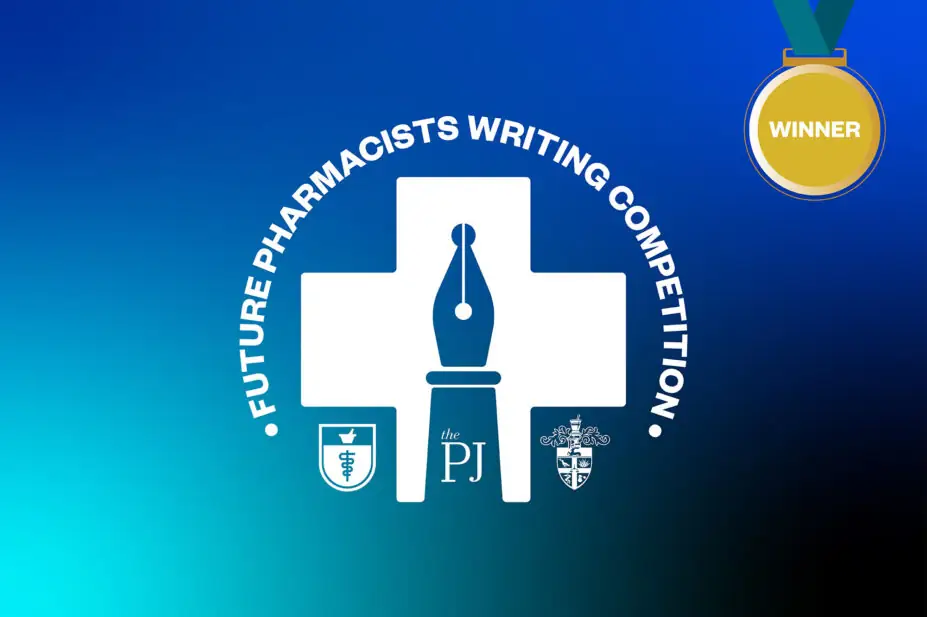
The Pharmaceutical Journal
UK pharmacist roles have transformed significantly, with contributions to clinical decision-making, medicines optimisation and preventative health being increasingly recognised. Pharmacy graduates, however, may not possess all the skills, confidence and real-world experience to satisfy NHS demands. Insufficient preparedness could cause service delivery errors, increased supervision burdens on experienced staff and patient safety risks.
Transitioning from pharmacy education to practice is complex, given the frequent disconnect between theoretical learning and real-world application. Clinical upskilling through integrating prescribing into the MPharm has made holistic patient management more important. Current evidence highlights community pharmacy acumen, mental health literacy and digital education as areas for curricular reform to support practice readiness.
Preparation for community pharmacy
Community pharmacy funding increased by 19.7% for 2025/2026, highlighting community pharmacists’ critical role in population health1. Newly qualified community pharmacists are typically the sole pharmacist, managing a team and assuming accountability immediately after registration. MPharm curricular changes can ease the transition to practice.
In one study (n=857), 78% of MPharm students believed community placements facilitated valuable learning2. However, 62% experienced limited patient contact owing to focusing on pre-assigned placement tasks — with 77% of respondents reporting minimal “hands-on” experiences. Though specific placement tasks can provide helpful structure and guidance, previous studies confirm that overly task-focused placements can distract students from real-world clinical engagement3–5.
Improving community pharmacy skills development would give students greater insight into real-world practice, enhancing understanding and confidence.
Mental health literacy
Mental health pharmacy services are lacking6,7. In 2018, however, a Royal Pharmaceutical Society (RPS) report highlighted the importance of pharmacy in supporting mental health8. The ‘NHS mental health implementation plan’ was subsequently published9. In 2020, Health Education England (HEE) issued mental health competencies for all pharmacists10. Depression is scheduled for inclusion in the new medicine service from October 20251.
Undergraduate mental health education requires improvement to enhance practice readiness
In a 2021 study, 75% of students did not think the MPharm integrated mental health learning11 — corroborated by a 2025 study12. Though 56.2% felt confident providing mental health support, only one-third believed the MPharm provided sufficient preparation11. In another study, less than half of MPharm students felt confident and competent to provide support for more severe mental illnesses, including bipolar disorder and schizophrenia13.
More than three-quarters of students (80.6%) were taught neuropharmacology — indicating prioritisation of theoretical knowledge over problem-solving and communication11. A prior study confirmed little exposure to people with lived experience14.
Pharmacists are often the first professionals people approach with mental health concerns15. Undergraduate mental health education requires improvement to enhance practice readiness.
Digital health education
The ‘NHS long-term plan’, RPS and HEE emphasise digital literacy’s role in supporting workflow digitisation16,17. Yet, the International Pharmaceutical Federation (FIP) reported that many pharmacy schools lack digital health education18. With 61% of pharmacists using digital tools daily, digital literacy is vital for informed decision-making18.
Pharmacy schools’ digital health education is under-reported. In the FIP survey, 52% of faculty felt their schools taught digital health skills; 57% reported no such teaching. Only 10% of students received digital health education. In another study (n=119), few pharmacy students felt confident finding (44%) or using (26%) medical apps19.
Many students wanted to improve their digital health knowledge18. Recipients of digital health education were 2.5 times more likely to continue their learning18.
Most UK pharmacy schools use MyDispense, a dispensing simulator with some EPR features but no prescribing focus20. SCRIPT, a national eLearning programme on safe prescribing, is comprehensive and freely available, but purely theoretical21. These gaps highlight opportunities for virtual prescribing in pharmacy education.
UK pharmacy schools have developed a digital community of practice and have an indicative curriculum for digital health in progress17,22. Strengthening digital health education will prepare graduates for a digitally evolving NHS.
Counter arguments
Community pharmacy does not interest all students, calling into question the relevance of the sector-specific interventions in the Table2,11,17,23–41. Improving preparedness for community practice, however, may increase interest — and skills developed through interventions are transferable to other sectors of practice.
Teaching time may limit intervention feasibility. Existing sessions should be adapted to address the practice areas in the Table and durations reviewed to accommodate new learning.
NHS sandbox environments are not designed for students, potentially affecting eligibility for access42. SimEPR’s cost may limit use35. MPharm prescribing competency requirements, and imperative to keep up with digitalisation, however, may help overcome access barriers. Excel simulators, while time-consuming to develop, provide a cost-effective alternative36.
Hackathons face logistical challenges including room hire, student capacity, and staff availability. Singular year group attendance or multiple smaller sessions may help. The FIP study on digital health education reported only 6% of pharmacy schools using hackathons, suggesting underutilisation37.
Call to action
The MPharm should develop individual confidence and competence, and interdisciplinary teamwork, in patient care and clinical workflows.
Conclusion
Experiential curricular reform which progressively integrates leadership, mental health and digital skills education can improve the practice readiness of UK pharmacy graduates. This will allow future delivery of transformative patient-centred care to meet evolving NHS priorities.
- 1.Community Pharmacy Contractual Framework: 2024 to 2025 and 2025 to 2026. Department of Health and Social Care. March 2025. Accessed September 2025. https://www.gov.uk/government/publications/community-pharmacy-contractual-framework-2024-to-2025-and-2025-to-2026/community-pharmacy-contractual-framework-2024-to-2025-and-2025-to-2026
- 2.Bullen K, Davison K, Hardisty J. Community pharmacy as an effective teaching and learning environment: Student perspectives from a UK MPharm programme. Currents in Pharmacy Teaching and Learning. 2019;11(9):902-908. doi:10.1016/j.cptl.2019.05.007
- 3.Brennan KM, Lennie SC. Students’ experiences and perceptions of the use of portfolios in UK preregistration dietetic placements: a questionnaire‐based study. J Human Nutrition Diet. 2010;23(2):133-143. doi:10.1111/j.1365-277x.2009.01028.x
- 4.Vance GHS, Burford B, Shapiro E, Price R. Longitudinal evaluation of a pilot e-portfolio-based supervision programme for final year medical students: views of students, supervisors and new graduates. BMC Med Educ. 2017;17(1). doi:10.1186/s12909-017-0981-5
- 5.Haggerty C, Thompson T. The challenges of incorporating ePortfolio into an undergraduate nursing programme. Open Praxis. 2017;9(2):245. doi:10.5944/openpraxis.9.2.554
- 6.de Barra M, Scott CL, Scott NW, et al. Pharmacist services for non-hospitalised patients. Cochrane Database of Systematic Reviews. 2018;2018(12). doi:10.1002/14651858.cd013102
- 7.Wheeler AJ, O’Reilly CL, El-Den S, Byrnes J, Ware RS, McMillan SS. Bridging the gap between physical and mental illness in community pharmacy (PharMIbridge): protocol for an Australian cluster randomised controlled trial. BMJ Open. 2020;10(7):e039983. doi:10.1136/bmjopen-2020-039983
- 8.No health without mental health: How can pharmacy support people with mental health problems? Royal Pharmaceutical Society. 2018. Accessed September 2025. https://www.rpharms.com/Portals/0/Documents/RPS%20mental%20health%20roundtable%20report%20June%202018_FINAL.pdf
- 9.NHS Mental Health Implementation Plan 2019/20 – 2023/24. NHS England. 2019. Accessed September 2025. https://www.longtermplan.nhs.uk/wp-content/uploads/2019/07/nhs-mental-health-implementation-plan-2019-20-2023-24.pdf
- 10.Framework of core mental health competencies for all pharmacy professionals. Health Education England. 2020. Accessed September 2025. https://www.hee.nhs.uk/sites/default/files/documents/Pharmacy%20Framework%202020.pdf
- 11.Gorton HC, Macfarlane H, Edwards R, et al. UK and Ireland survey of MPharm student and staff experiences of mental health curricula, with a focus on Mental Health First Aid. J of Pharm Policy and Pract. 2021;14(1). doi:10.1186/s40545-021-00364-1
- 12.Macfarlane H, Paton A, Bush J. A qualitative exploration of the interaction between mental illness stigma and preparedness for practice in pharmacy students. Currents in Pharmacy Teaching and Learning. 2025;17(3):102271. doi:10.1016/j.cptl.2024.102271
- 13.Keating D, McWilliams S, Clarke M, Strawbridge J. Pharmacy student attitudes to mental illness and the provision of mental health care: a repeated cross-sectional survey. Int J Clin Pharm. 2023;45(5):1231-1240. doi:10.1007/s11096-023-01651-4
- 14.Rutter P, Taylor D, Branford D. Mental Health Curricula at Schools of Pharmacy in the United Kingdom and Recent Graduates’ Readiness to Practice. American Journal of Pharmaceutical Education. 2013;77(7):147. doi:10.5688/ajpe777147
- 15.Taylor DA, Taylor ADJ, Jones M, Family HE. Community pharmacist involvement in social prescribing for mental health: a qualitative study. Prim Health Care Res Dev. 2024;25. doi:10.1017/s1463423624000409
- 16.Digital Capabilities for the Pharmacy Workforce. Health Education England. 2021. Accessed September 2025. https://www.hee.nhs.uk/sites/default/files/Supporting%20Digital%20Literacy%20in%20the%20Pharmacy%20Workforce%20-%20June%202021.pdf
- 17.Digital Capabilities for the Pharmacy Workforce. Royal Pharmaceutical Society. 2024. Accessed September 2025. https://www.rpharms.com/recognition/all-our-campaigns/policy-a-z/digital-capabilities-for-the-pharmacy-workforce?utm_source=chatgpt.com#2
- 18.Mantel-Teeuwisse AK, Meilianti S, Khatri B, et al. Digital Health in Pharmacy Education: Preparedness and Responsiveness of Pharmacy Programmes. Education Sciences. 2021;11(6):296. doi:10.3390/educsci11060296
- 19.Rodis J, Aungst TD, Brown NV, Cui Y, Tam L. Enhancing Pharmacy Student Learning and Perceptions of Medical Apps. JMIR mHealth uHealth. 2016;4(2):e55. doi:10.2196/mhealth.4843
- 20.Slater N, Mason T, Micallef R, Ramkhelawon M, May L. Enabling Access to Pharmacy Law Teaching during COVID-19: Student Perceptions of MyDispense and Assessment Outcomes. Pharmacy. 2023;11(2):44. doi:10.3390/pharmacy11020044
- 21.SCRIPT prescribing e-learning tool. Health Education England. 2023. Accessed September 2025. https://kss.hee.nhs.uk/wp-content/uploads/sites/15/2023/02/SCRIPT-guidance-prescribing-e-learning-tool-1.pdf
- 22.Alowais M, Nazar H, Tolley C. Digital literacy education for UK undergraduate pharmacy students: a mixed-methods study. International Journal of Pharmacy Practice. 2024;32(5):413-419. doi:10.1093/ijpp/riae040
- 23.Kiles TM, Weaver T, Stallings A. Development and implementation of a Community Pharmacy “Bootcamp” activity – A pilot study. Currents in Pharmacy Teaching and Learning. 2025;17(1):102205. doi:10.1016/j.cptl.2024.102205
- 24.This is a drill: the simulations training next-generation pharmacists. Pharmaceutical Journal. Published online 2023. doi:10.1211/pj.2023.1.198456
- 25.Standards for the initial education and training of pharmacists. General Pharmaceutical Council. 2021. Accessed September 2025. https://assets.pharmacyregulation.org/files/2024-01/Standards%20for%20the%20initial%20education%20and%20training%20of%20pharmacists%20January%202021%20final%20v1.4.pdf
- 26.O’Reilly CL, Bell JS, Kelly PJ, Chen TF. Impact of Mental Health First aid Training on Pharmacy Students’ Knowledge, Attitudes and Self-Reported Behaviour: A Controlled Trial. Aust N Z J Psychiatry. 2011;45(7):549-557. doi:10.3109/00048674.2011.585454
- 27.Ung TX, O’Reilly CL, Moles RJ, et al. Evaluation of Mental Health First Aid Training and Simulated Psychosis Care Role-Plays for Pharmacy Education. American Journal of Pharmaceutical Education. 2024;88(11):101288. doi:10.1016/j.ajpe.2024.101288
- 28.Tew J, Gell C, Foster S. Learning from Experience: Involving service users and carers in mental health education and training. Higher Education Academy/National Institute for Mental Health in England/Trent Workforce Development Confederation. 2004. Accessed September 2025. http://www.swapbox.ac.uk/692/1/learning-from-experience-whole-guide.pdf
- 29.Keating D, McWilliams S, Hynes C, Purcell A, Clarke M, Strawbridge J. Patients and Caregivers Helping to Shape the Undergraduate Pharmacy Mental Health Curriculum. American Journal of Pharmaceutical Education. 2019;83(9):7138. doi:10.5688/ajpe7138
- 30.Patten SB, Remillard A, Phillips L, et al. Effectiveness of contact-based education for reducing mental illness-related stigma in pharmacy students. BMC Med Educ. 2012;12(1). doi:10.1186/1472-6920-12-120
- 31.Nguyen E, Chen TF, O’Reilly CL. Evaluating the impact of direct and indirect contact on the mental health stigma of pharmacy students. Soc Psychiatry Psychiatr Epidemiol. 2011;47(7):1087-1098. doi:10.1007/s00127-011-0413-5
- 32.Keating D, McWilliams S, Hynes C, Clarke M, Strawbridge J. Pharmacy Students’ Reflections on an Experiential Learning Visit to a Psychiatric Hospital. American Journal of Pharmaceutical Education. 2019;83(5):6784. doi:10.5688/ajpe6784
- 33.Allinson M, Archer N, Montero-Diaz F, Jacklin S, Thompson J. Use of the arts in pharmacy education to develop self-perceived empathy. Pharm Educ. 2023;23(1):732-740. doi:10.46542/pe.2023.231.732740
- 34.Cox SR, Barchet AC. Evaluating the implementation of a pharmacy hackathon pilot. Currents in Pharmacy Teaching and Learning. 2023;15(11):979-983. doi:10.1016/j.cptl.2023.09.008
- 35.Wilder P. Simulating EPR in Healthcare – Part One . UCL Partners Health Innovation. January 2024. Accessed September 2025. https://uclpartners.com/london-simulation-network/london-simulation-network-newsletter-articles/newsletter-articles-2024-jan-mar-archive/simulating-epr-in-healthcare-part-one-january-2024/
- 36.Wilder P. Simulating EPR in Healthcare – part 2. UCL Partners Health Innovation. March 2024. Accessed September 2025. https://uclpartners.com/london-simulation-network/london-simulation-network-newsletter-articles/newsletter-articles-2024-jan-mar-archive/simulating-epr-in-healthcare-part-2-march-2024/
- 37.SimEPR – embedding digital skills in clinical training. Kent Surrey Sussex Academic Health Science Network. July 2022. Accessed September 2025. https://healthinnovation-kss.com/wp-content/uploads/2022/07/KSS_CaseStudy_SimEPR-v3.pdf
- 38.LoSasso AA, Lamberton CE, Sammon M, et al. Enhancing Student Empathetic Engagement, History-Taking, and Communication Skills During Electronic Medical Record Use in Patient Care. Academic Medicine. 2017;92(7):1022-1027. doi:10.1097/acm.0000000000001476
- 39.Al-Ani A, Rayyan A, Maswadeh A, et al. Evaluating the understanding of the ethical and moral challenges of Big Data and AI among Jordanian medical students, physicians in training, and senior practitioners: a cross-sectional study. BMC Med Ethics. 2024;25(1). doi:10.1186/s12910-024-01008-0
- 40.Zainal H, Tan JK, Xiaohui X, Thumboo J, Yong FK. Clinical informatics training in medical school education curricula: a scoping review. Journal of the American Medical Informatics Association. 2022;30(3):604-616. doi:10.1093/jamia/ocac245
- 41.Möllmann NR, Mirbabaie M, Stieglitz S. Is it alright to use artificial intelligence in digital health? A systematic literature review on ethical considerations. Health Informatics J. 2021;27(4). doi:10.1177/14604582211052391
- 42.Testing APIs. NHS Digital. Accessed September 2025. https://digital.nhs.uk/developer/guides-and-documentation/testing/


